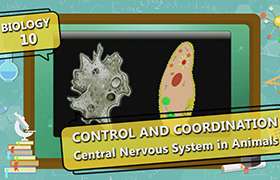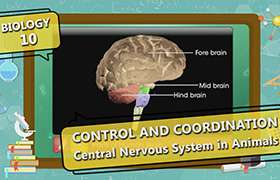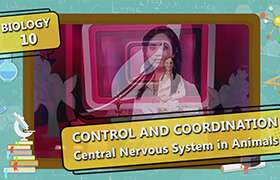CBSE Class 10 Answered
Alcohol affects different regions of the brain in different ways:
Cerebral cortex: Alcohol slows down the processing of information from eyes, ears, mouth and other senses. It does not allow a person to think clearly.
Cerebellum: Alcohol affects this centre of movement and balance, resulting in staggering and loss in body balance.
Hypothalamus and pituitary: The hypothalamus and pituitary coordinate automatic brain functions and hormone release. Alcohol depresses nerve centres in the hypothalamus and cause imbalance in hormonal secretion.
Medulla: Medulla controls functions such as breathing, consciousness and body temperature. Alcohol induces sleepiness and can also slow down breathing and lower body temperature, which can be life-threatening.





